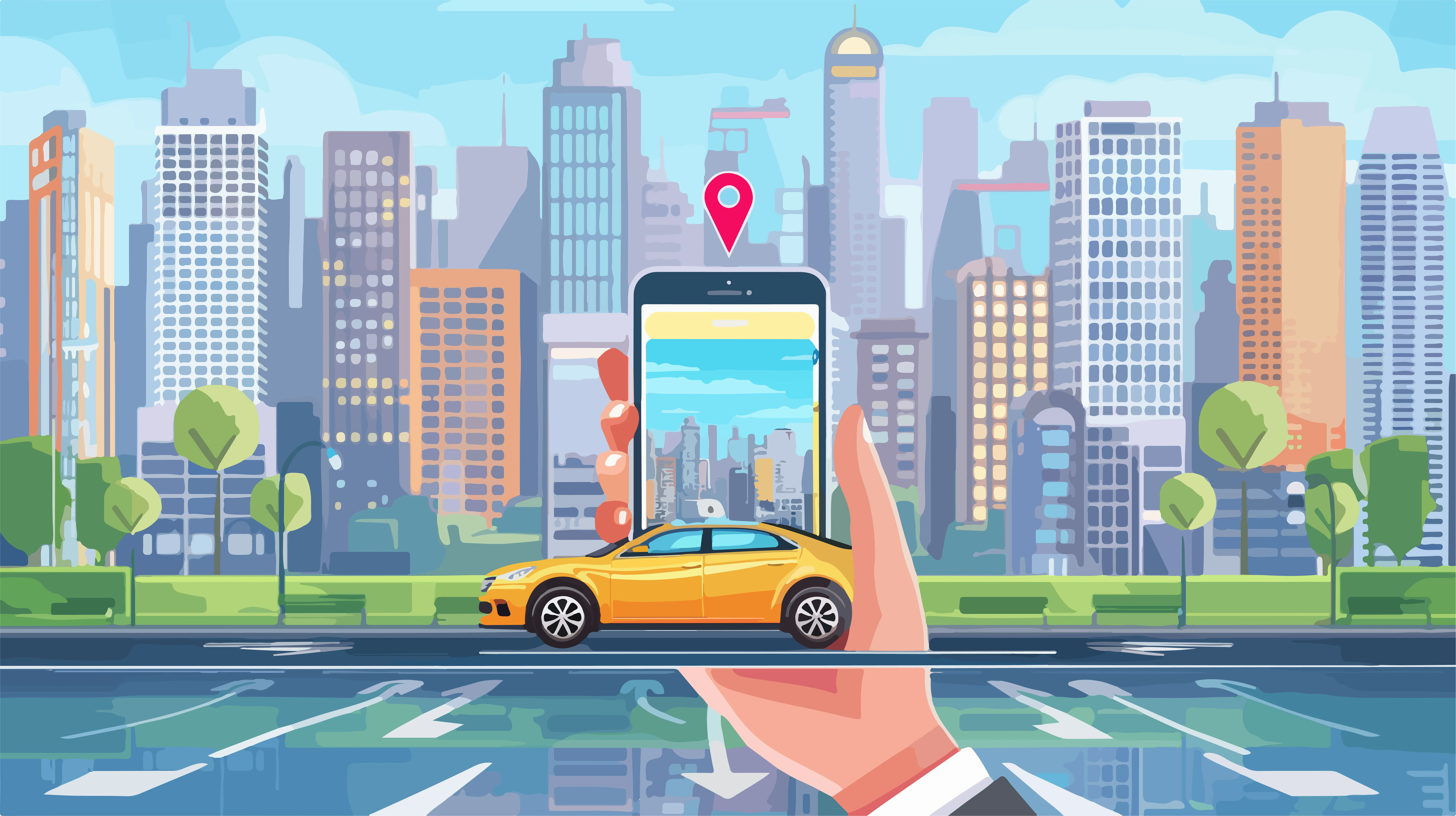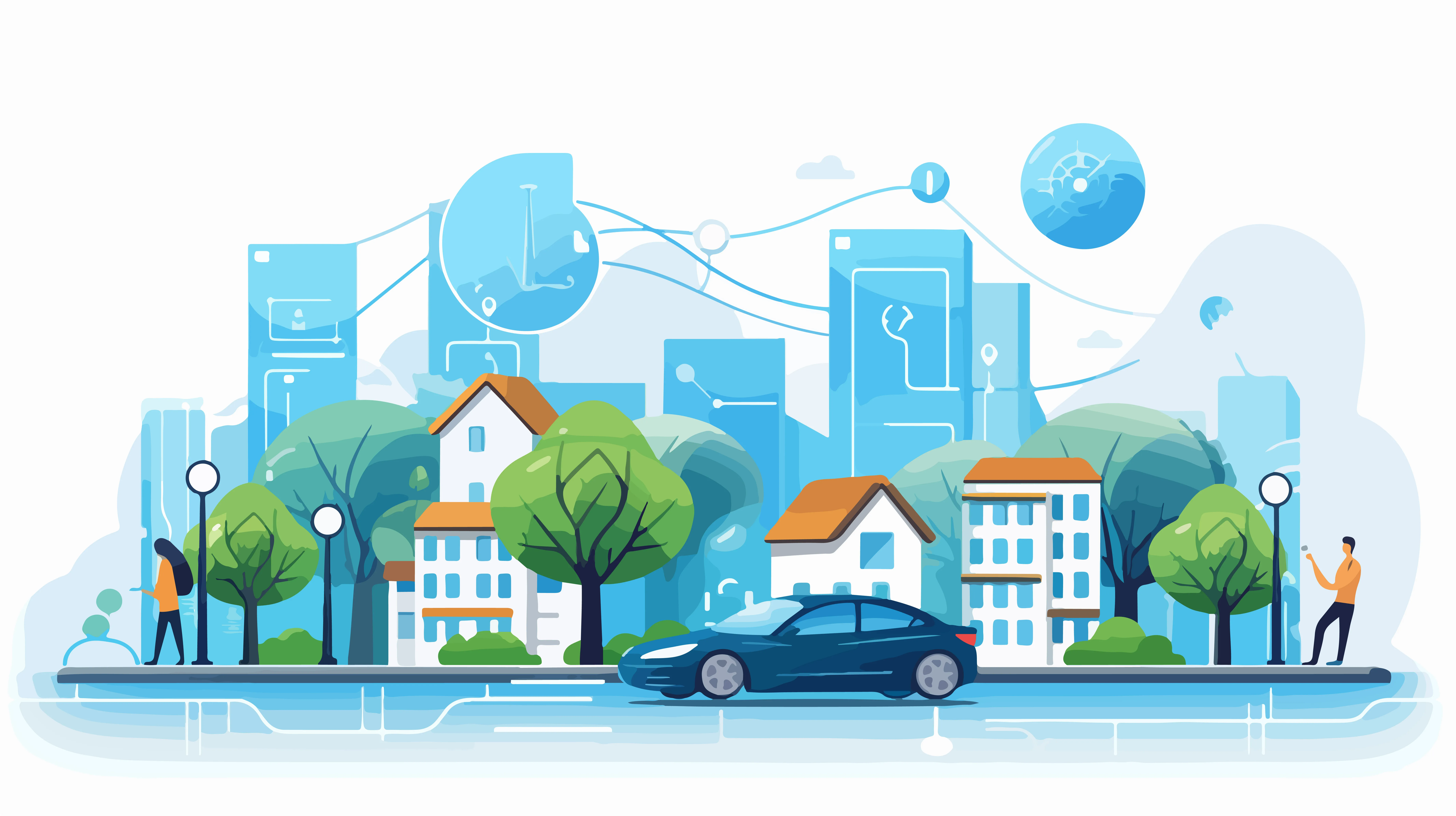As the world moves toward a more sustainable future, connected cars are emerging as a key driver in reshaping urban transportation and reducing environmental impacts. Through the integration of cutting-edge communication technologies, these vehicles are not only enhancing the driving experience but also significantly cutting down on carbon emissions and supporting eco-friendly innovations. From the integration of electric vehicles (EVs) to intelligent routing systems that reduce fuel consumption, connected cars are changing the way we approach transportation.
These vehicles interact with urban infrastructure, optimize energy use, and promote more efficient driving habits, creating the foundation for greener cities and a cleaner environment. This blog will delve into the exciting ways connected cars are transforming sustainable mobility, offering a glimpse of a future where technology and environmental responsibility work together seamlessly. Discover the latest strategies and insights into eco-friendly driving behaviors and sustainable ecosystems at our upcoming Connected Cars Conference.
The Rise of Connected Cars
- Connected cars are vehicles equipped with internet access and advanced communication systems that enable them to interact with external networks, other vehicles, and infrastructure.
- These vehicles utilize a combination of wireless technologies such as cellular networks, Wi-Fi, and Bluetooth to share real-time data, enhancing various aspects of transportation.
- The integration of connected car technology is revolutionizing the driving experience by providing features that increase safety, convenience, and efficiency.
- For example, safety is significantly enhanced through systems like real-time traffic updates, collision avoidance, and automatic emergency responses. Additionally, connected cars provide greater convenience by offering features like remote diagnostics, infotainment integration, and seamless navigation.

- This connectivity also improves the overall driving experience by enabling smarter decision-making on the road, reducing congestion, and paving the way for more efficient urban mobility solutions.
How Connected Cars Help Reduce Environmental Impact
- The transportation industry faces critical environmental challenges, such as high levels of carbon emissions and air pollution.
- Traditional vehicles are a significant source of greenhouse gases, contributing to global warming and deteriorating air quality in cities.
- Connected cars, however, are offering a solution by enabling more sustainable transportation.
- Through advanced technologies such as real-time traffic data, route optimization, and vehicle-to-everything (V2X) communication, connected cars allow drivers to reduce fuel consumption, cut down on emissions, and adopt eco-friendly driving practices.
- These innovations are part of a broader push towards greener mobility and a more sustainable future.
The Key to Green Mobility
- The integration of connected car technology with electric vehicles (EVs) is accelerating the shift toward green mobility.
- EVs are central to reducing transportation-related carbon footprints, as they produce no tailpipe emissions, offering a cleaner alternative to gasoline and diesel vehicles.
- By utilizing connectivity features, connected cars optimize EVs' performance by calculating the most efficient routes and tracking battery levels.
- This integration also supports the growing EV infrastructure, including charging stations and renewable energy sources, ensuring that electric vehicles are used efficiently and sustainably.
- As EV adoption grows, connected cars help maximize their potential in reducing the environmental impact of urban transport.
Smart Routing and Energy Efficiency
- Connected cars utilize smart routing to minimize energy consumption, making them more efficient than traditional vehicles.
- These vehicles continuously analyze real-time data such as traffic conditions, weather, and road hazards to choose the most energy-efficient routes.
- By avoiding traffic congestion and reducing time spent idling, connected cars help lower fuel consumption, reduce emissions, and improve overall efficiency.
- This real-time decision-making process plays a significant role in promoting sustainability by minimizing the environmental footprint of daily commuting and long-distance travel, while also optimizing fuel efficiency for drivers.
A Smarter, Greener Approach
- Connected cars are capable of communicating with various elements of urban infrastructure, such as traffic lights, road sensors, and charging stations.
- This communication, known as vehicle-to-everything (V2X) technology, allows vehicles to make smarter decisions on the road, such as adjusting speed to optimize fuel use or coordinating with traffic lights to avoid unnecessary idling.
- This integration not only enhances traffic flow and reduces congestion but also supports the development of smart cities that rely on interconnected systems to promote efficiency and sustainability.
- V2X communication can help reduce urban pollution by enabling smoother, more efficient traffic patterns, further contributing to greener cities.
Promoting Eco-Conscious Driving Behavior
- Connected cars are designed to encourage eco-friendly driving behavior.
- Through features such as fuel-efficient driving tips, eco-mode settings, and real-time feedback, these vehicles help drivers adopt sustainable habits.
- For example, drivers may be alerted when they are speeding, braking too hard, or idling unnecessarily, prompting them to adjust their driving for greater fuel efficiency.
- By providing continuous insights into driving patterns, connected cars empower individuals to make environmentally-conscious decisions behind the wheel, ultimately contributing to reduced emissions and lower fuel consumption.
The Future of Connected Cars and Sustainability
- The future of connected cars holds even greater potential for sustainability, particularly with the rise of autonomous driving and further integration with renewable energy sources.
- Autonomous vehicles, in particular, could revolutionize the way we approach energy efficiency by optimizing driving behavior and reducing the carbon footprint of transportation.
- Additionally, the further integration of renewable energy such as solar-powered charging stations will allow connected cars to rely on clean energy, reducing their reliance on fossil fuels.
- As connected car technology continues to evolve, its contributions to sustainable, smart cities and eco-conscious mobility will only grow, helping to create a greener and more sustainable future for urban transportation.

Conclusion
Connected cars are reshaping the future of transportation with their blend of advanced technologies and sustainability. From enhancing fuel efficiency through smart routing to promoting eco-friendly driving behaviors and integrating with electric vehicles, connected cars are integral to creating a more sustainable transportation ecosystem. As these technologies continue to evolve, the potential for connected cars to contribute to a cleaner and greener future is immense. By supporting innovations in sustainable mobility, we can all contribute to a healthier planet for future generations. Join our upcoming Connected Cars conference Digital Revolution in Connected Cars 2025 to explore new strategies and insights on eco-friendly driving behaviors and the evolving ecosystem. Stay updated and register now by visiting our website.